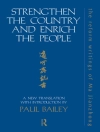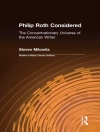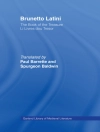In 'Memories Grave and Gay, ’ Florence Howe Hall crafts a poignant exploration of the complexities of memory through a blend of lyrical prose and reflective essays. The book weaves personal anecdotes with broader cultural narratives, encapsulating the duality of joyful reminiscences and somber reflections on loss. Hall’s literary style is marked by a distinctive lyrical quality that captures the nuances of human emotion, positioned within a rich historical and social context that resonates with the changing American landscape of the early 20th century. As readers navigate through Hall’s vivid recollections, they are invited to ponder their own relationship with memory and the passage of time. Florence Howe Hall, an influential author and educator, drew upon her diverse experiences in her pursuit of capturing the intricacies of human memory. Her tenure as a leader in the literary community, coupled with her dedication to women’s rights and social justice, undoubtedly shaped her worldview and literary voice. This intellectual background not only informs the thematic depth of her writing but also enhances its emotional resonance, reflecting the intersections of personal and collective history. 'Memories Grave and Gay’ is a compelling read for those who seek to engage with the intricacies of memory and the human experience. Hall’s unique ability to juxtapose grief and joy offers readers a space for reflection and connection, making this book a valuable addition to the libraries of readers interested in poignant storytelling and cultural introspection.
O autorze
Florence Howe Hall (1845–1922) was a noted American author and lecturer, recognized primarily for her literary contributions that blended personal reflections with social commentary. As the daughter of distinguished reformers Samuel Gridley Howe and Julia Ward Howe, Hall was predisposed to a life of intellectual pursuit and advocacy. Her mother’s fame as the author of 'The Battle Hymn of the Republic’ afforded Florence a status within literary circles that she deftly capitalized on, engaging in the cultural dialogues of her era. Hall’s portfolio is a testament to her literary versatility, encompassing biographies, etiquette books, and reflective prose. However, it is her work 'Memories Grave and Gay’ (1911) that endures as a poignant chronicle of her personal experiences, offering unique insights into the social milieu of nineteenth and early twentieth-century America. In this semi-autobiographical work, Hall intertwines her own life story with larger cultural narratives, capturing the spirit of the times with both sagacity and a touch of wit. Hall’s contributions extend beyond her publications as she was also a dedicated supporter of women’s rights, reflecting the ethos of her family’s legacy in her actions and writings. Her literary style is often characterized by a didactic quality and a rich use of language, evidences of her deep-rooted education and the influence of her erudite background.












